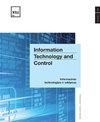基于贝叶斯定理和集成学习的新型范围乳腺癌预测模型
IF 2
4区 计算机科学
Q3 AUTOMATION & CONTROL SYSTEMS
引用次数: 3
摘要
乳腺癌预测对于预防和治疗癌症至关重要。本研究介绍了一种新的乳腺癌预测模型。此外,本研究旨在提供基于范围的癌症评分,而不是二元分类结果(是或否)。使用乳腺癌监测联盟数据集(BCSC)数据集,并通过应用提出的概率模型进行修改,以实现基于范围的癌症评分。该模型分析了整个BCSC数据集的一个子数据集,包括67632条记录和13个风险因素。获得三种类型的统计数据(一般癌症和非癌症概率,以前的医学知识,以及给定所有预测类别的每个风险因素的可能性)。该模型还采用加权方法实现了BCSC各风险因素的最佳融合。利用风险因素加权组合后的后概率和概率模型得到的三个统计量计算最终预测分数。最终的预测结果被添加到BCSC数据集中,新版本的BCSC数据集被用来训练一个由30个学习者组成的集成模型。实验采用子数据集和全数据集(包括317880份病历)进行。结果表明,该模型具有较好的鲁棒性和准确性,准确率为91.33%,误拒率为1.12%,AUC为0.9795。新版本的BCSC数据集可用于进一步的研究和分析。本文章由计算机程序翻译,如有差异,请以英文原文为准。
A New Range-based Breast Cancer Prediction Model Using the Bayes' Theorem and Ensemble Learning
Breast cancer prediction is essential for preventing and treating cancer. In this research, a novel breast cancer prediction model is introduced. In addition, this research aims to provide a range-based cancer score instead of binary classification results (yes or no). The Breast Cancer Surveillance Consortium dataset (BCSC) dataset is used and modified by applying a proposed probabilistic model to achieve the range-based cancer score. The suggested model analyses a sub dataset of the whole BCSC dataset, including 67632 records and 13 risk factors. Three types of statistics are acquired (general cancer and non-cancer probabilities, previous medical knowledge, and the likelihood of each risk factor given all prediction classes). The model also uses the weighting methodology to achieve the best fusion of the BCSC's risk factors. The computation of the final prediction score is done using the post probability of the weighted combination of risk factors and the three statistics acquired from the probabilistic model. This final prediction is added to the BCSC dataset, and the new version of the BCSC dataset is used to train an ensemble model consisting of 30 learners. The experiments are applied using the sub and the whole datasets (including 317880 medical records). The results indicate that the new range-based model is accurate and robust with an accuracy of 91.33%, a false rejection rate of 1.12%, and an AUC of 0.9795. The new version of the BCSC dataset can be used for further research and analysis.
求助全文
通过发布文献求助,成功后即可免费获取论文全文。
去求助
来源期刊

Information Technology and Control
工程技术-计算机:人工智能
CiteScore
2.70
自引率
9.10%
发文量
36
审稿时长
12 months
期刊介绍:
Periodical journal covers a wide field of computer science and control systems related problems including:
-Software and hardware engineering;
-Management systems engineering;
-Information systems and databases;
-Embedded systems;
-Physical systems modelling and application;
-Computer networks and cloud computing;
-Data visualization;
-Human-computer interface;
-Computer graphics, visual analytics, and multimedia systems.
 求助内容:
求助内容: 应助结果提醒方式:
应助结果提醒方式:


